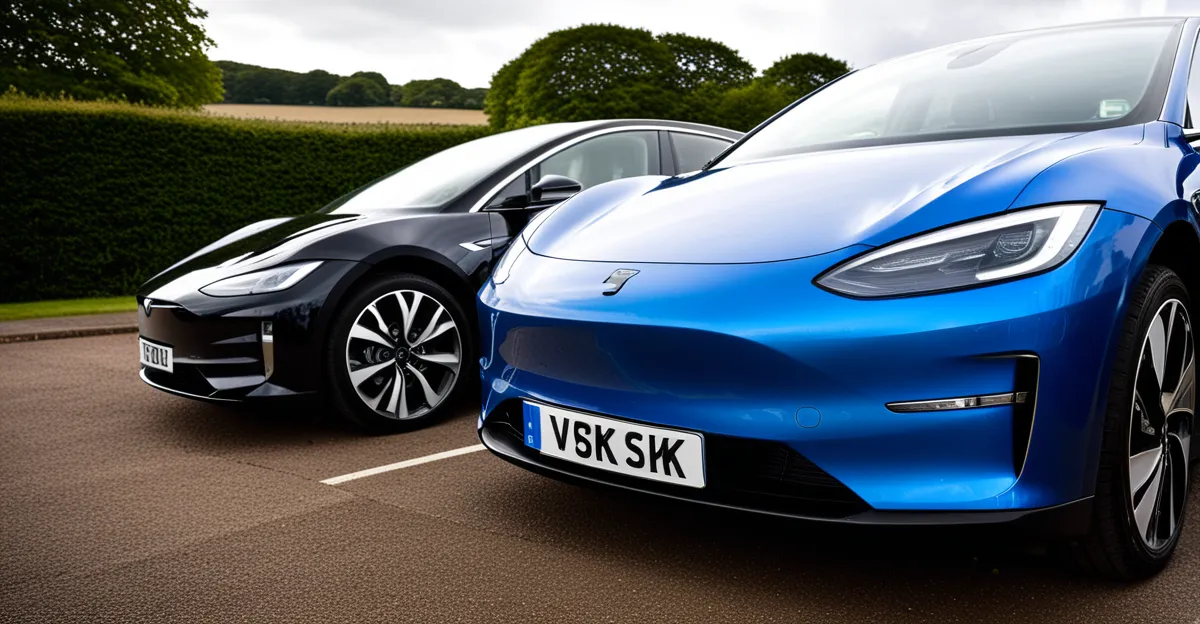Transformation of the UK Automotive Industry in the Electric Vehicle Era
The UK automotive industry is currently experiencing a profound transformation as it shifts from traditional petrol and diesel vehicles to electric vehicles (EVs). This change is driven by advances in battery technology, tightening emissions regulations, and growing consumer demand for more sustainable transport options. The shift is not just technological but cultural, marking a significant departure from a century of combustion engine dominance.
Key factors accelerating this transformation include government policies promoting zero-emission vehicles, increased investment in EV production by UK manufacturers, and the expansion of charging infrastructure nationwide. These elements work together to create a favorable ecosystem that supports EV adoption at an impressive scale.
This might interest you : Upgrade Your 2015 Audi A6: Discover the Comfort of a Heated Steering Wheel!
The speed of this industry transformation is unprecedented. Leading UK car manufacturers have rapidly pivoted to electrification, ramping up production of EV models and integrating new supply chains focused on batteries and electronic components. This evolution in the UK automotive industry signals an industry-wide commitment to innovation and sustainability, ensuring the UK remains competitive globally as electric vehicles become the new norm.
Government Policies Driving Electric Vehicle Adoption
Government initiatives are pivotal in accelerating the UK EV policy landscape, shaping the industry’s rapid shift to electric vehicles. The UK government has set ambitious zero-emissions targets, aiming to ban the sale of new petrol and diesel cars by 2030. This deadline encourages manufacturers and consumers alike to pivot towards electric alternatives swiftly.
This might interest you : Upgrade Your 2015 Audi A6: Discover the Comfort of a Heated Steering Wheel!
To facilitate this transition, numerous government incentives exist, ranging from purchase grants for new EVs to subsidies for installing home charging points. These incentives significantly reduce the upfront costs for consumers, making electric vehicles more accessible. Additionally, the government has invested heavily in expanding public charging infrastructure and supports research and development related to EV technology.
Key regulations also mandate stricter emissions standards, compelling the UK automotive industry to innovate. For example, tax benefits for zero-emission vehicles motivate companies to prioritize EV production.
Together, these UK EV policy actions, grants, and targets form a comprehensive framework that not only promotes market growth but also aligns with broader climate goals. The regulatory clarity provided gives manufacturers confidence to invest in electrification, while consumers benefit from increased affordability and choice, thereby accelerating the industry transformation toward sustainable mobility.
Impact on UK Automotive Manufacturers and Global Competitiveness
The UK car manufacturers have swiftly adjusted their production strategies in response to the electric vehicle surge. Traditional assembly lines once focused on petrol and diesel engines are now retooled for EV production, emphasizing battery integration and electronic systems. This shift isn’t merely technical; it requires significant capital investment and strategic partnerships, often with battery suppliers and tech firms.
Investment in research and development is a crucial element underpinning this change. UK manufacturers allocate substantial resources to improve battery efficiency, vehicle range, and charging technologies, aligning products with evolving consumer demands and regulatory requirements. This focus bolsters innovation, ensuring competitiveness in the fast-growing global EV market.
Positioned as key players internationally, UK automotive companies are expanding their footprint through exports and collaborations. However, they face stiff competition from established global EV leaders. To maintain a competitive edge, UK manufacturers emphasize quality, advanced technology, and sustainability credentials. The industry’s commitment to electrification is not only transforming domestic production but also influencing the broader global automotive market dynamics. This transformation secures the UK’s role as a significant contributor to the rapidly evolving electric vehicle landscape.
Supply Chains and Job Market Evolution
The UK automotive industry is undergoing a significant overhaul in its supply chains to meet the demands of electric vehicle production. Traditional supply networks focused on internal combustion engine parts are being replaced by complex systems centered on batteries, electric motors, and sophisticated electronics. This shift necessitates new sourcing strategies and closer collaboration with battery producers and technology specialists, ensuring reliability and scalability in EV component supply.
Alongside these supply chain changes, the UK automotive industry faces an evolving job market. While some roles tied to petrol and diesel vehicles become obsolete, new opportunities emerge in battery manufacturing, software development, and EV maintenance. This transition presents a dual challenge: mitigating employment displacement and equipping the workforce with relevant skills. Proactive retraining programs and partnerships between manufacturers and educational institutions are key to supporting workers navigating this shift.
In summary, the restructuring of the automotive supply chain and targeted workforce development are vital components in the broader industry transformation. Addressing these elements effectively helps sustain the UK’s leadership in EVs while fostering an adaptable and skilled labor force prepared for the future of automotive manufacturing.











